The stage curtains part to reveal a scene right out of a Hockney pool painting. Here is the blue-tiled swimming pool, the concrete patio, the white modernist villa with wood-panelled ceilings and sliding glass doors. On the horizon, the silhouettes of tropical trees and rugged mountains. The painterly tranquillity is interrupted when a young man, dripping with water and wearing nothing but a speedo, appears on stage. Through the glass, he glimpses two artworks that hang on a wall inside the villa. He runs over to the one on the left: a lurid abstraction composed of orange scrawls against lime green. He reaches out to touch it, his hands still wet. Another man shows up, a couple of decades older. Right away, the younger guy asks, ‘Is that a Twombly?’
The two men have just met, but their evolving relationship will form the narrative backbone of “Daddy”: A Melodrama, a play by Jeremy O. Harris which premiered in New York in 2019 and is now – after a two-year pandemic-induced delay – at the Almeida Theatre in London. Franklin (played by Terique Jarrett) is an emerging artist from a Black Southern family whose father walked out and left his son with a shedload of daddy issues. Andre (the ever-dapper Claes Bang) is a wealthy collector of unspecified white European origin, who immediately falls for Franklin and is more than happy to indulge in a bit of father-son role-play. On their first MDMA-fuelled night together Andre offers to buy all the works in Franklin’s upcoming gallery show, but the idealistic ingénue says no because art ‘becomes worthless once it’s owned’. Instead he agrees to move in, setting up studio in Andre’s beautifully appointed Bel-Air home. (The Hockney vibe is no accident – Harris’s ‘notes on style’ in the script instruct you to Google the painter’s Portrait of an Artist (Pool with Two Figures) from 1971 ‘if you’ve never seen it’.)
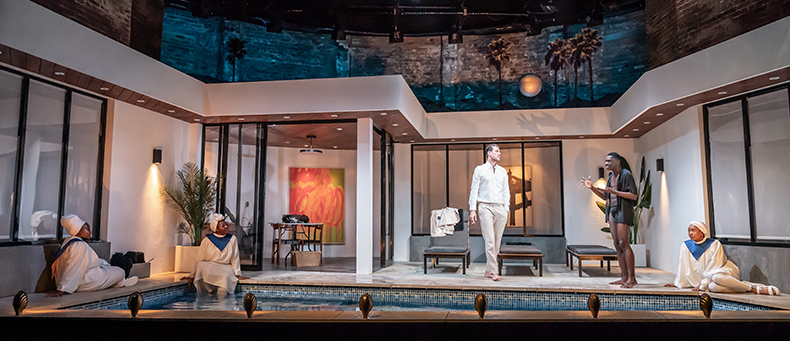
Photo: Marc Brenner
While he doesn’t buy any of Franklin’s work – hand-sewn stuffed dolls that the artist’s mother, the devoutly religious Zora (Sharlene Whyte), calls his ‘coon babies’ – Andre does lavish him with expensive gifts. He also wields connections to wrangle press coverage for Franklin’s show, hosts the afterparty on opening night, and offers him a job running a gallery in Thailand – where, apparently, ‘Australians on vacay blow stacks on artists they’ve never even heard of ’. At first Franklin can’t believe his luck. But gradually he begins to feel overwhelmed, trapped. Although he initially didn’t seem to notice, or perhaps to care, his interactions with Andre are disturbingly racialised – the white man describes his skin as ‘like the sweetest chocolate’ and refers to him as ‘my little Naomi’, because his legs remind him of the model Naomi Campbell’s. Their sexual encounters veer into a sadomasochism that Franklin doesn’t always want. Jarrett is terrific at conveying his growing sense of degradation. His gallerist, Alessia (Jenny Rainsford), is sanguine: ‘Honey, no, listen, patronage is nothing to be ashamed of. I have a trust […] It’s fine. It’s the Medicis, the Guggenheims, the Rubells, the Gettys, that are responsible for all the art we love.’
During the play’s interval, the AbEx paintings hanging in the villa are switched out for canvases by African American artists Kerry James Marshall and Barkley L. Hendricks. Andre always collects work that he thinks will be a good investment – it’s suggested that Franklin is well on the way to attaining blue-chip status himself, with his first show a sell-out success. Alessia is openly cynical about how to achieve this: marketing the artist’s ‘Blackness and queerness’ to appeal to ‘this current moment’. The art world is an easy target for satire, but that doesn’t make the jokes at its expense any less delicious. (See also: Bang’s star-making turn in Ruben Östland’s 2017 film The Square.) Yet for all the laughs, the tone of this play is far from straightforwardly ironic. Rather, as the subtitle informs us, this is a melodrama: a heightened realm where matters of the heart and soul are treated with the utmost sincerity. When Zora comes to stay at the villa, Franklin finds he can no longer repress his emotions. Years of trauma and pain come bubbling to the surface. Theatrical excesses – surreal musical interludes, dramatic spotlights, abstract movement sequences – become ways to express Franklin’s worsening mental state.
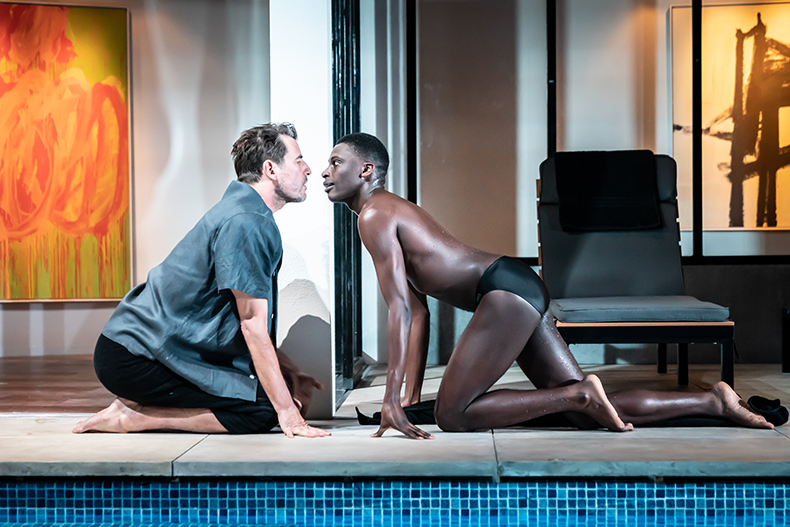
Claes Bang and Terique Jarrett. Photo: Marc Brenner
It transpires that “Daddy” – complete with scare quotes – is the title that Franklin has picked for his exhibition at the gallery. He thinks of the small dolls, smartly dressed in little suits and shoes, as a kind of self-portrait. When they say ‘daddy’, they are ‘speaking for themselves’ – addressing an absent father figure: maybe none of this is about Andre at all.
Later, Franklin embarks on a new series of larger-than-life soft sculptures (designed by the artist Tschabalala Self) representing himself, Zora, and Andre. When they are finally revealed, we see that the figures of himself and his mother are expressively rendered, with screen-printed faces and other details – the female doll is wearing pointy red heels – but Andre’s is a featureless white blob. Andre is horrified. ‘You didn’t give me a face,’ he says. ‘You said you wanted to see the world as I saw it,’ Franklin responds. The sculptures have been lying on the ground but he picks the mother and son dolls up and arranges them lovingly so they are sitting side by side. This is his work, his show – and it belongs to nobody but him.
“Daddy”: A Melodrama, written by Jeremy O. Harris and directed by Danya Taymor, is at the Almeida Theatre, London until 30 April 2022.
Unlimited access from just $16 every 3 months
Subscribe to get unlimited and exclusive access to the top art stories, interviews and exhibition reviews.

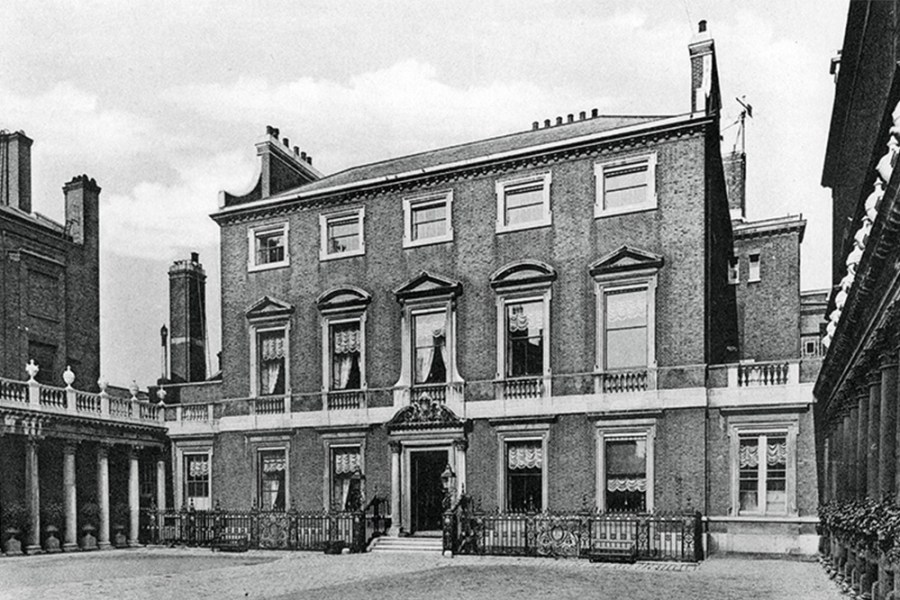
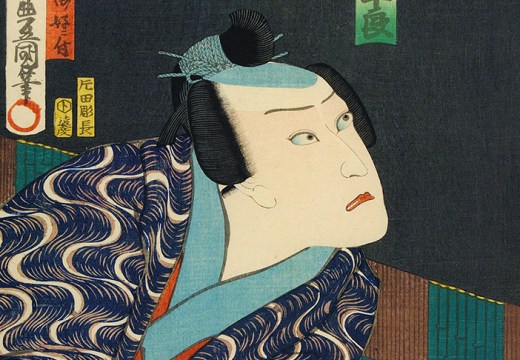
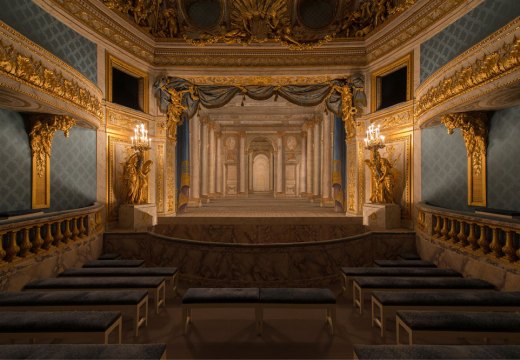
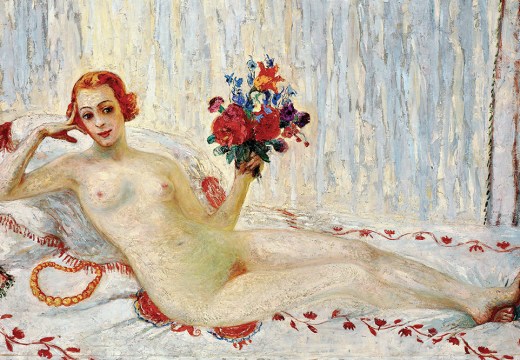







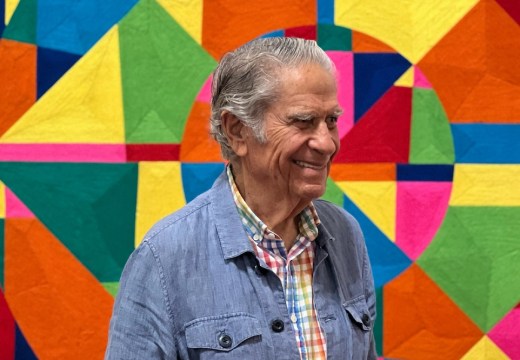

![Masterpiece [Re]discovery 2022. Photo: Ben Fisher Photography, courtesy of Masterpiece London](http://www.apollo-magazine.com/wp-content/uploads/2022/07/MPL2022_4263.jpg)
It’s time for the government of London to return to its rightful home